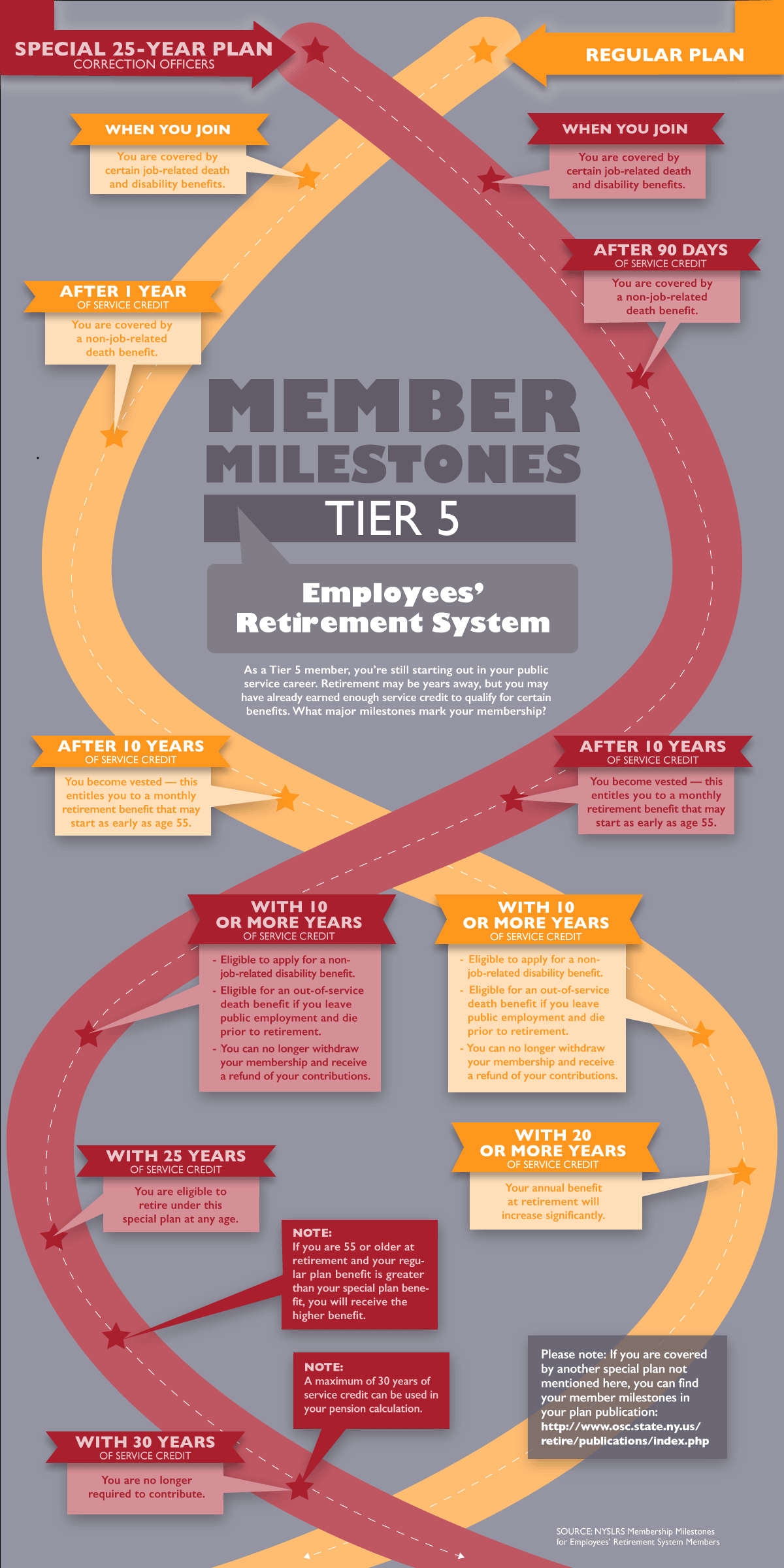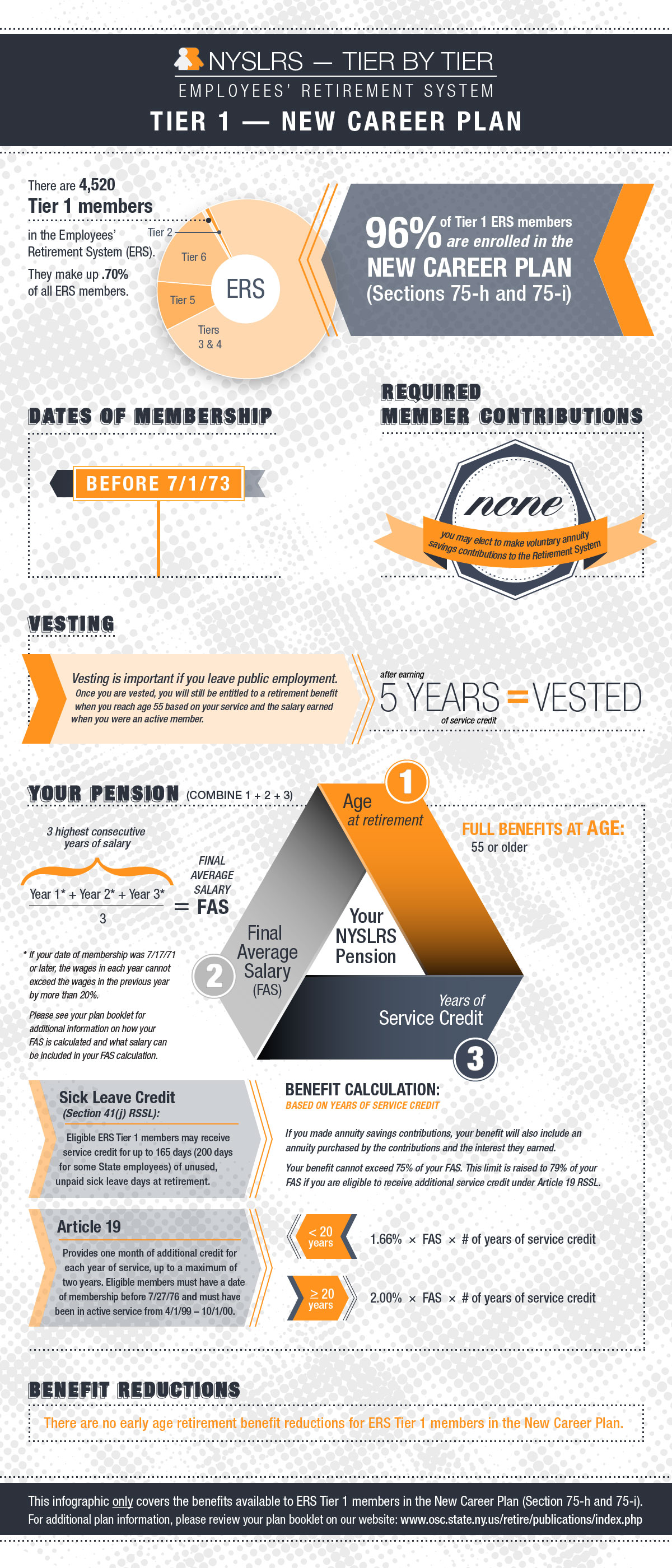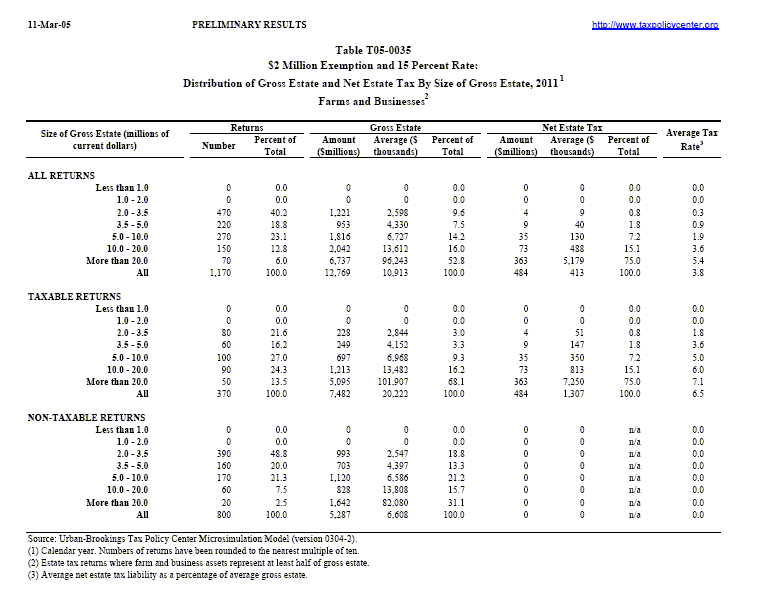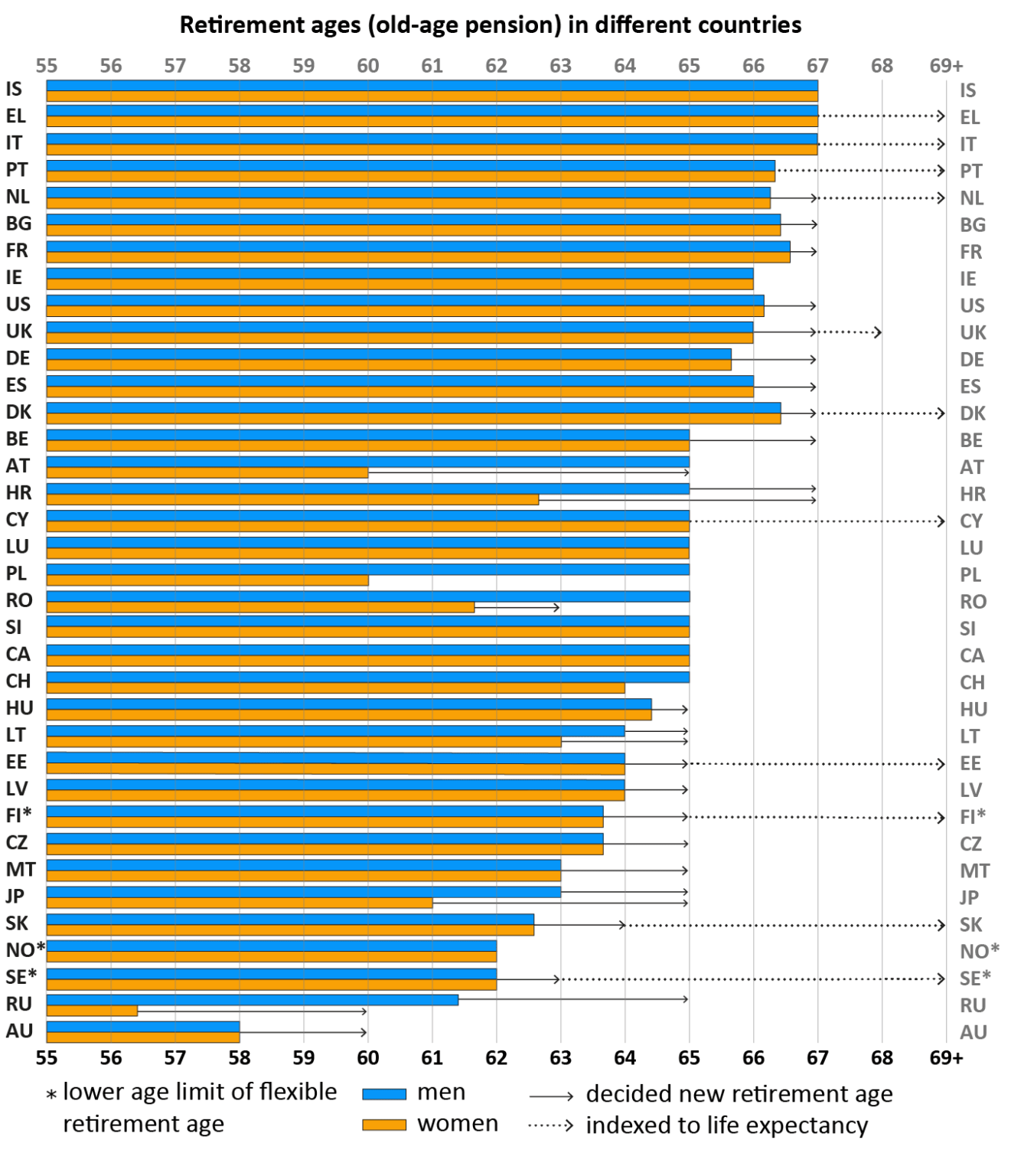Your Nys retirement system tier 5 images are ready. Nys retirement system tier 5 are a topic that is being searched for and liked by netizens today. You can Download the Nys retirement system tier 5 files here. Find and Download all royalty-free photos.
If you’re searching for nys retirement system tier 5 images information connected with to the nys retirement system tier 5 interest, you have pay a visit to the ideal site. Our website frequently provides you with suggestions for seeking the highest quality video and image content, please kindly surf and find more informative video content and graphics that fit your interests.
Nys Retirement System Tier 5. There were 1,967 pfrs tier 5 members as of march 31, 2021, making up 5.6 percent of pfrs membership. July 1, 2009 through january 8, 2010* tier 5: Police and fire retirement system members. Fas is the average of the wages earned in the three highest consecutive years of employment.
 Retirement Milestones for ERS Tier 3 and 4 Members New York From nyretirementnews.com
Retirement Milestones for ERS Tier 3 and 4 Members New York From nyretirementnews.com
April 1, 2012 or after *pfrs members who joined july 1, 2009 through january 8, 2010 and did not elect to be covered by article 22 (opt into tier 5), can be covered by article 11 or article 14 benefits, depending on their retirement plan election. There were 37,114 ers tier 5 members — 5.8 percent of all ers members — as of march 31, 2021. Anyone who joined pfrs from january 9, 2010 through march 31, 2012 is in tier 5. There were 1,967 pfrs tier 5 members as of march 31, 2021, making up 5.6 percent of pfrs membership. Today’s post looks at pfrs tier 5. Police and fire retirement system members.
Today’s post looks at pfrs tier 5.
Today’s post looks at ers tier 5, which covers ers members who joined from january 1, 2010 through march 31, 2012. The retirement benefit for tier 5 members is 1.66 percent of their final average salary (fas) for each year of service if the member retires with less than 20 years. Fas is the average of the wages earned in the three highest consecutive years of employment. Today’s post looks at ers tier 5, which covers ers members who joined from january 1, 2010 through march 31, 2012. April 1, 2012 or after *pfrs members who joined july 1, 2009 through january 8, 2010 and did not elect to be covered by article 22 (opt into tier 5), can be covered by article 11 or article 14 benefits, depending on their retirement plan election. Our series, nyslrs — one tier at a time, walks through each tier to give you a quick look at the benefits in both ers and pfrs.
 Source: nyretirementnews.com
Source: nyretirementnews.com
Fas is the average of the wages earned in the three highest consecutive years of employment. July 1, 2009 through january 8, 2010* tier 5: Overtime pay in excess of 15 percent of a member’s regular annual wages is not included in the definition of wages. Police and fire retirement system members. Our series, nyslrs — one tier at a time, walks through each tier to give you a quick look at the benefits in both ers and pfrs.
 Source: nyretirementnews.com
Source: nyretirementnews.com
January 9, 2010 through march 31, 2012: Employers should not report to the retirement system any overtime pay in excess of this cap as it cannot be used in a member’s final average salary calculation. Today’s post looks at pfrs tier 5. Today’s post looks at ers tier 5, which covers ers members who joined from january 1, 2010 through march 31, 2012. July 1, 2009 through january 8, 2010* tier 5:
 Source: nyretirementnews.com
Source: nyretirementnews.com
For tier 5 members, each year’s compensation used in the fas calculation is limited. For tier 5 members, each year’s compensation used in the fas calculation is limited. Police and fire retirement system members. July 1, 2009 through january 8, 2010* tier 5: Today’s post looks at pfrs tier 5.
 Source: nysretirementnews.com
Source: nysretirementnews.com
Fas is the average of the wages earned in the three highest consecutive years of employment. Our series, nyslrs — one tier at a time, walks through each tier to give you a quick look at the benefits in both ers and pfrs. Police and fire retirement system members. July 1, 2009 through january 8, 2010* tier 5: Today’s post looks at pfrs tier 5.
 Source: pinterest.com
Source: pinterest.com
Today’s post looks at pfrs tier 5. Fas is the average of the wages earned in the three highest consecutive years of employment. Today’s post looks at ers tier 5, which covers ers members who joined from january 1, 2010 through march 31, 2012. Police and fire retirement system members. There were 1,967 pfrs tier 5 members as of march 31, 2021, making up 5.6 percent of pfrs membership.
 Source: nyretirementnews.com
Source: nyretirementnews.com
There were 37,114 ers tier 5 members — 5.8 percent of all ers members — as of march 31, 2021. Fas is the average of the wages earned in the three highest consecutive years of employment. July 1, 2009 through january 8, 2010* tier 5: Overtime pay in excess of 15 percent of a member’s regular annual wages is not included in the definition of wages. The retirement benefit for tier 5 members is 1.66 percent of their final average salary (fas) for each year of service if the member retires with less than 20 years.
 Source: slidesharedocs.blogspot.com
Source: slidesharedocs.blogspot.com
Today’s post looks at pfrs tier 5. January 9, 2010 through march 31, 2012: April 1, 2012 or after *pfrs members who joined july 1, 2009 through january 8, 2010 and did not elect to be covered by article 22 (opt into tier 5), can be covered by article 11 or article 14 benefits, depending on their retirement plan election. Employers should not report to the retirement system any overtime pay in excess of this cap as it cannot be used in a member’s final average salary calculation. Overtime pay in excess of 15 percent of a member’s regular annual wages is not included in the definition of wages.
 Source: nysretirementnews.com
Source: nysretirementnews.com
January 9, 2010 through march 31, 2012: April 1, 2012 or after *pfrs members who joined july 1, 2009 through january 8, 2010 and did not elect to be covered by article 22 (opt into tier 5), can be covered by article 11 or article 14 benefits, depending on their retirement plan election. Today’s post looks at ers tier 5, which covers ers members who joined from january 1, 2010 through march 31, 2012. January 9, 2010 through march 31, 2012: The retirement benefit for tier 5 members is 1.66 percent of their final average salary (fas) for each year of service if the member retires with less than 20 years.
 Source: nyretirementnews.com
Source: nyretirementnews.com
Fas is the average of the wages earned in the three highest consecutive years of employment. There were 37,114 ers tier 5 members — 5.8 percent of all ers members — as of march 31, 2021. Police and fire retirement system members. Anyone who joined pfrs from january 9, 2010 through march 31, 2012 is in tier 5. The retirement benefit for tier 5 members is 1.66 percent of their final average salary (fas) for each year of service if the member retires with less than 20 years.
 Source: nysretirementnews.com
Source: nysretirementnews.com
Fas is the average of the wages earned in the three highest consecutive years of employment. July 1, 2009 through january 8, 2010* tier 5: Today’s post looks at ers tier 5, which covers ers members who joined from january 1, 2010 through march 31, 2012. Anyone who joined pfrs from january 9, 2010 through march 31, 2012 is in tier 5. Employers should not report to the retirement system any overtime pay in excess of this cap as it cannot be used in a member’s final average salary calculation.
 Source: nyretirementnews.com
Source: nyretirementnews.com
There were 1,967 pfrs tier 5 members as of march 31, 2021, making up 5.6 percent of pfrs membership. Police and fire retirement system members. Fas is the average of the wages earned in the three highest consecutive years of employment. Employers should not report to the retirement system any overtime pay in excess of this cap as it cannot be used in a member’s final average salary calculation. Anyone who joined pfrs from january 9, 2010 through march 31, 2012 is in tier 5.
 Source: nyretirementnews.com
Source: nyretirementnews.com
Our series, nyslrs — one tier at a time, walks through each tier to give you a quick look at the benefits in both ers and pfrs. There were 1,967 pfrs tier 5 members as of march 31, 2021, making up 5.6 percent of pfrs membership. For tier 5 members, each year’s compensation used in the fas calculation is limited. There were 37,114 ers tier 5 members — 5.8 percent of all ers members — as of march 31, 2021. July 1, 2009 through january 8, 2010* tier 5:
 Source: nyretirementnews.com
Source: nyretirementnews.com
Today’s post looks at pfrs tier 5. January 9, 2010 through march 31, 2012: July 1, 2009 through january 8, 2010* tier 5: Police and fire retirement system members. Fas is the average of the wages earned in the three highest consecutive years of employment.
 Source: nyretirementnews.com
Source: nyretirementnews.com
Our series, nyslrs — one tier at a time, walks through each tier to give you a quick look at the benefits in both ers and pfrs. There were 1,967 pfrs tier 5 members as of march 31, 2021, making up 5.6 percent of pfrs membership. Our series, nyslrs — one tier at a time, walks through each tier to give you a quick look at the benefits in both ers and pfrs. There were 37,114 ers tier 5 members — 5.8 percent of all ers members — as of march 31, 2021. April 1, 2012 or after *pfrs members who joined july 1, 2009 through january 8, 2010 and did not elect to be covered by article 22 (opt into tier 5), can be covered by article 11 or article 14 benefits, depending on their retirement plan election.
 Source: nyretirementnews.com
Source: nyretirementnews.com
Anyone who joined pfrs from january 9, 2010 through march 31, 2012 is in tier 5. April 1, 2012 or after *pfrs members who joined july 1, 2009 through january 8, 2010 and did not elect to be covered by article 22 (opt into tier 5), can be covered by article 11 or article 14 benefits, depending on their retirement plan election. Anyone who joined pfrs from january 9, 2010 through march 31, 2012 is in tier 5. Our series, nyslrs — one tier at a time, walks through each tier to give you a quick look at the benefits in both ers and pfrs. Police and fire retirement system members.
 Source: nyretirementnews.com
Source: nyretirementnews.com
For tier 5 members, each year’s compensation used in the fas calculation is limited. Our series, nyslrs — one tier at a time, walks through each tier to give you a quick look at the benefits in both ers and pfrs. For tier 5 members, each year’s compensation used in the fas calculation is limited. Employers should not report to the retirement system any overtime pay in excess of this cap as it cannot be used in a member’s final average salary calculation. January 9, 2010 through march 31, 2012:
 Source: nyretirementnews.com
Source: nyretirementnews.com
Employers should not report to the retirement system any overtime pay in excess of this cap as it cannot be used in a member’s final average salary calculation. For tier 5 members, each year’s compensation used in the fas calculation is limited. Police and fire retirement system members. Employers should not report to the retirement system any overtime pay in excess of this cap as it cannot be used in a member’s final average salary calculation. Overtime pay in excess of 15 percent of a member’s regular annual wages is not included in the definition of wages.
 Source: nysretirementnews.com
Source: nysretirementnews.com
July 1, 2009 through january 8, 2010* tier 5: The retirement benefit for tier 5 members is 1.66 percent of their final average salary (fas) for each year of service if the member retires with less than 20 years. There were 1,967 pfrs tier 5 members as of march 31, 2021, making up 5.6 percent of pfrs membership. For tier 5 members, each year’s compensation used in the fas calculation is limited. There were 37,114 ers tier 5 members — 5.8 percent of all ers members — as of march 31, 2021.
This site is an open community for users to share their favorite wallpapers on the internet, all images or pictures in this website are for personal wallpaper use only, it is stricly prohibited to use this wallpaper for commercial purposes, if you are the author and find this image is shared without your permission, please kindly raise a DMCA report to Us.
If you find this site helpful, please support us by sharing this posts to your preference social media accounts like Facebook, Instagram and so on or you can also save this blog page with the title nys retirement system tier 5 by using Ctrl + D for devices a laptop with a Windows operating system or Command + D for laptops with an Apple operating system. If you use a smartphone, you can also use the drawer menu of the browser you are using. Whether it’s a Windows, Mac, iOS or Android operating system, you will still be able to bookmark this website.






